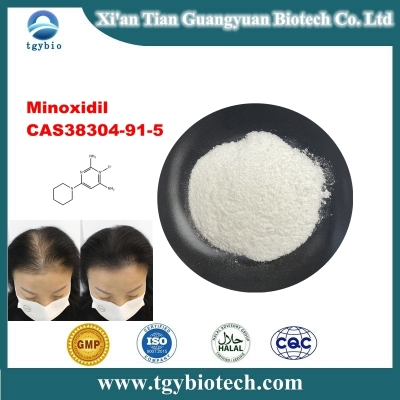-
Categories
-
Pharmaceutical Intermediates
-
Active Pharmaceutical Ingredients
-
Food Additives
- Industrial Coatings
- Agrochemicals
- Dyes and Pigments
- Surfactant
- Flavors and Fragrances
- Chemical Reagents
- Catalyst and Auxiliary
- Natural Products
- Inorganic Chemistry
-
Organic Chemistry
-
Biochemical Engineering
- Analytical Chemistry
-
Cosmetic Ingredient
- Water Treatment Chemical
-
Pharmaceutical Intermediates
Promotion
ECHEMI Mall
Wholesale
Weekly Price
Exhibition
News
-
Trade Service
Phosphocreatine (PCr) is an important compound in the chemical industry and has a wide range of applications in various fields such as pharmaceuticals, nutraceuticals, and cosmeceuticals.
PCr is an organic acid that is composed of a creatine molecule bonded to a phosphate group.
It is found naturally in the body, primarily in muscle tissue, where it serves as a readily available energy source for high-intensity activities.
The production of PCr involves several steps, including the synthesis of creatine and the conversion of creatine to PCr.
The synthesis of creatine is typically achieved through the use of microorganisms such as bacteria or yeast, which can convert the amino acids glycine, arginine, and methionine into creatine.
The conversion of creatine to PCr can be carried out through a variety of chemical reactions, including esterification, amidation, and other techniques.
One of the most common methods for the production of PCr involves the use of an enzyme called creatine kinase, which catalyzes the conversion of creatine to PCr.
This process is known as creatine kinase reaction, and it is widely used in the production of PCr.
The creatine kinase reaction is a reversible reaction, which means that the reaction can proceed in both directions, depending on the conditions and the presence of inhibitors.
The PCr is used in various applications in the chemical industry, it is used as an energy source, a nutritional supplement, a food additive, and a cosmetic ingredient.
In the pharmaceutical industry, PCr is used as an intermediate in the synthesis of some drugs.
It is also used as a raw material in the production of various chemicals, such as dyes, plastics, and other industrial products.
PCr has been found to have several health benefits, including increasing muscle mass, improving exercise performance, and reducing muscle damage and fatigue.
This has led to an increasing demand for PCr in the nutraceutical and cosmeceutical industry.
PCr is also used in various food products as a preservative and a nutritional supplement, it is also used in the production of some beverages and Energy drinks.
In the cosmetic industry, PCr is used as an ingredient in various products such as skin care and hair care products, due to its ability to improve skin and hair elasticity, and to reduce the appearance of wrinkles and fine lines.
However, it is important to note that the use of PCr as a nutritional supplement and food additive is still in its early stages and more research is needed to confirm its safety and efficacy.
Additionally, the use of PCr as a cosmetic ingredient is also still in its early stages, more research is needed to confirm its safety and efficacy.
In conclusion, Phosphocreatine (PCr) is an important compound in the chemical industry and has a wide range of applications in various fields such as pharmaceuticals, nutraceuticals, and cosmeceuticals.
The production of PCr involves several steps, including the synthesis of creatine and the conversion of creatine to PCr.
The PCr is used in various applications in the chemical industry, it is used as an energy source, a nutritional supplement, a food additive, and a cosmetic ingredient.
However, it is important to note that the use of PCr as a nutritional supplement and food additive is still in its early stages and more research is needed to confirm its safety and efficacy.
Additionally, the use of PCr as a cosmetic ingredient is also still in its early stages, more research is needed to confirm its safety and efficacy.







